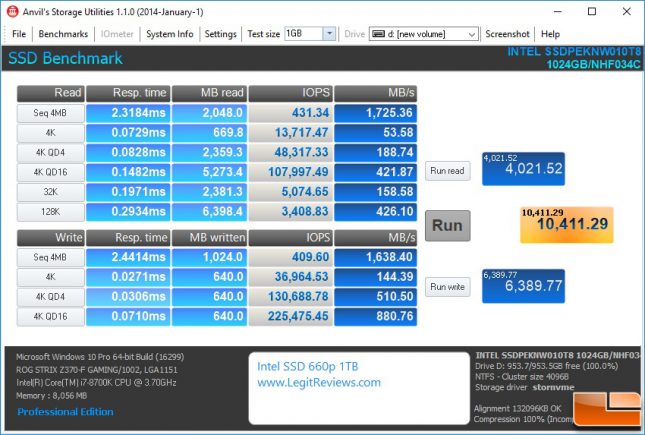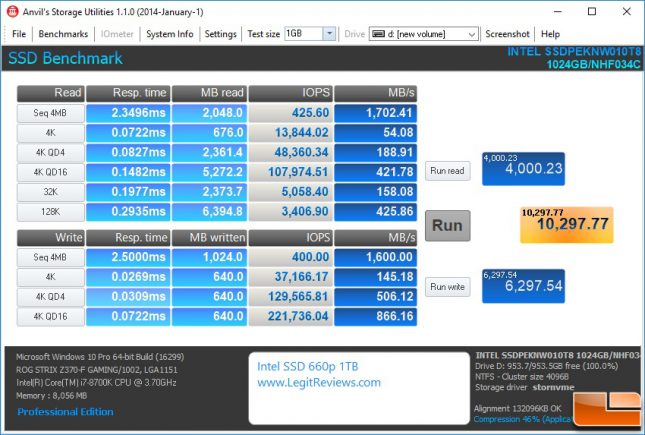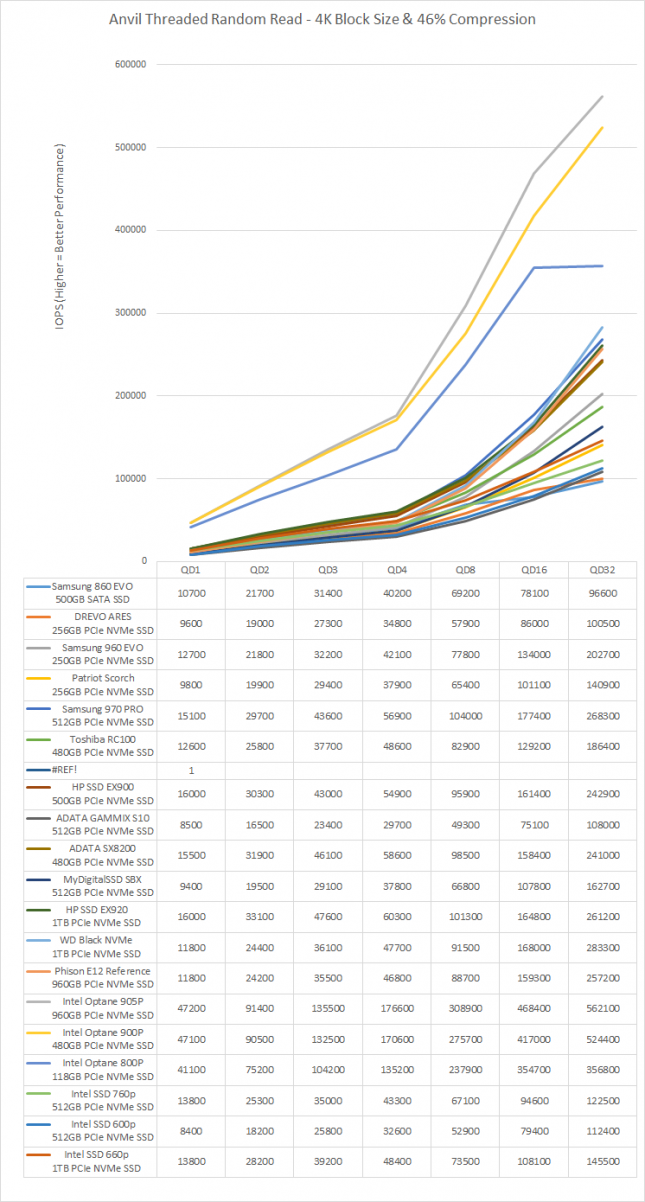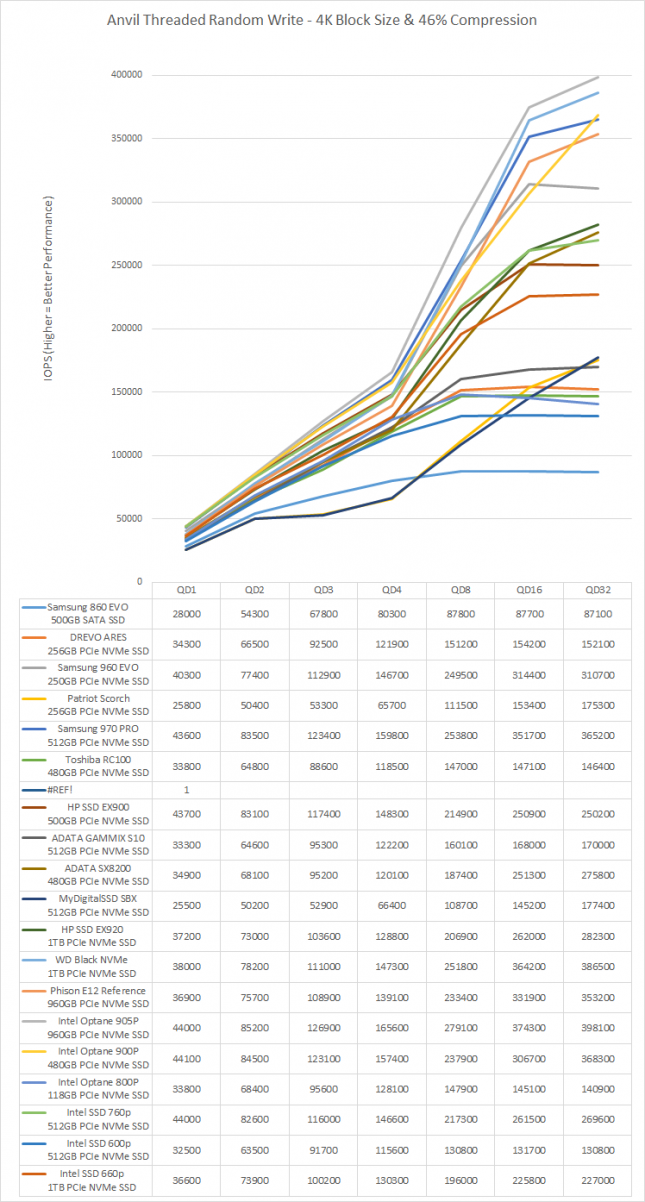Intel SSD 660p 1TB SSD Review With QLC NAND Flash
Anvil Storage Utilities
Anvil Storage Utilities 1.1.0
Along with the move to a new platform, we decided to make a change in one of the benchmarks. There’s a relatively new benchmark called Anvil Storage Utilities that is in beta but close to production. It’s a very powerful tool that measures performance through a variety of tests which can be customized. Since some of the tests more or less duplicate what we get from other benchmarks we use already, we decided to use the IOPS (Input/Output Operations Per Second) testing on 4kb file sizes at a queue depth of 1, 2, 3, 4, 8, 16, and 32. IOPS performance is something SSD makers tout quite a bit but we generally don’t do a lot of IOPS testing because frankly a lot of users can’t relate to IOPS metrics as well and it tends to be more meaningful to the enterprise/server crowd. Still, it is another performance indicator with relevance and while some drives post good MB/s numbers, their IOPS scores aren’t always commensurate which this test will prove out.
Anvil SSD Benchmark with 100% Compression (incompressible data):
Benchmark Results: The Anvil SSD Benchmark showed that with 100% compression (incompressible data) the Intel SSD 660p 1TB drive had an overall score of 10,411.29 points. The drive topped out at 1,725.36 MB/s read and 1,638.40 MB/s write on the sequential performance test with 4MB file sizes. Random 4K QD16 performance hit 108k IOPS on read and 225K IOPS write.
Anvil SSD Applications Benchmark at 46% Compression:
Benchmark Results: With the compression at 46% to help mimic real world applications better we found the overall score was slightly lower at 10,297.77 points.
The low-queue depth performance for random reads is really good on the Intel SSD 660p 1TB drive at 13,800 IOPS in our testing. Only four NAND-based PCIe NVMe drives can beat that.
The 4K Random write performance also isn’t terrible with a 36,600 IOPS at QD1 with the 660p 1TB reaching 227,000 at QD32 in our testing.




